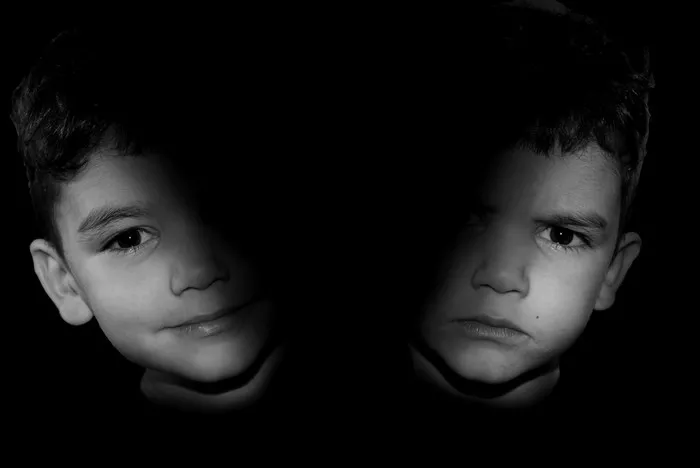Bipolar disorder is a complex mental health condition characterized by significant mood swings, including episodes of mania and depression. While anyone can develop bipolar disorder, certain personality traits or types may exhibit a higher propensity toward the condition due to genetic, environmental, and psychological factors. Understanding these correlations can help improve early detection, intervention, and overall management.
Understanding Bipolar Disorder
What Is Bipolar Disorder?
Bipolar disorder, previously known as manic-depressive illness, is a mental health condition marked by extreme mood changes. These episodes vary in intensity and duration, cycling between:
Mania or Hypomania: Elevated mood, increased energy, impulsive behaviors, and reduced need for sleep.
Depression: Persistent feelings of sadness, fatigue, hopelessness, and loss of interest in activities.
Types of Bipolar Disorder
Bipolar I Disorder: Defined by at least one manic episode lasting a week or requiring hospitalization.
Bipolar II Disorder: Characterized by hypomanic and depressive episodes but no full manic episodes.
Cyclothymic Disorder: Involves numerous periods of hypomanic and depressive symptoms over at least two years without meeting the full criteria for either mania or major depression.
Personality Traits Linked to Bipolar Disorder
Research suggests certain personality traits may predispose individuals to bipolar disorder. These traits are not causative but are correlated with a higher likelihood of developing the condition.
High Sensitivity and Emotional Intensity
People with heightened emotional sensitivity often react more strongly to life events. This intensity can amplify the highs and lows typical of bipolar disorder. Emotional sensitivity is also linked to:
Increased empathy and creative thinking.
Greater susceptibility to stress-induced mood changes.
Impulsivity and Risk-Taking
Impulsivity is a hallmark of manic episodes. Individuals with impulsive personality traits may:
Engage in risky behaviors, such as substance abuse or reckless spending, during manic states.
Experience difficulties in regulating emotions, contributing to mood instability.
Perfectionism
Perfectionistic tendencies are common in individuals prone to mood disorders. They may:
Struggle with feelings of inadequacy during depressive episodes.
Overexert themselves during manic phases to achieve unrealistic goals.
Extroversion and High Energy
Some extroverted individuals, especially those with high energy levels, may display behaviors mimicking hypomania. Characteristics such as sociability, talkativeness, and overconfidence could predispose them to manic tendencies.
Personality Types and Bipolar Disorder
Several frameworks attempt to classify personality types, including the Myers-Briggs Type Indicator (MBTI) and the Five-Factor Model (FFM). While no personality type guarantees the development of bipolar disorder, certain types are more commonly observed among those diagnosed.
Myers-Briggs Personality Types
ENFP (Extraverted, Intuitive, Feeling, Perceiving):
ENFPs are known for their enthusiasm, creativity, and emotional expressiveness.
They may experience intense mood swings, making them more susceptible to the extremes of bipolar disorder.
ENTP (Extraverted, Intuitive, Thinking, Perceiving):
ENTPs thrive on excitement and novelty but can exhibit impulsive behaviors.
Their adventurous nature may mirror manic episodes, though these traits do not inherently indicate the disorder.
Five-Factor Model Traits
The Five-Factor Model measures personality based on five dimensions: openness, conscientiousness, extraversion, agreeableness, and neuroticism. The following traits are strongly associated with bipolar tendencies:
High Neuroticism:
Tendency to experience negative emotions such as anxiety, anger, and depression.
Highly reactive to stress, which can trigger mood episodes.
High Openness to Experience:
Creative and imaginative individuals may exhibit traits resembling mania.
This trait is also linked to greater emotional awareness and intensity.
Low Conscientiousness:
Difficulty in maintaining routines and self-discipline, often exacerbated during mood swings.
Impulsivity during manic episodes may reflect a lack of conscientiousness.
Biological and Environmental Factors
Genetic Predisposition
Bipolar disorder has a significant hereditary component. Individuals with family members who have bipolar disorder or similar conditions are at a higher risk, regardless of their personality traits.
Environmental Triggers
Environmental stressors, such as trauma, chronic stress, or substance abuse, can activate bipolar symptoms in vulnerable individuals. Personality traits like high sensitivity may exacerbate reactions to these triggers.
Brain Chemistry and Personality
Neurotransmitter imbalances involving serotonin, dopamine, and norepinephrine play a crucial role in bipolar disorder. These chemical imbalances may influence personality traits such as impulsivity, energy levels, and mood stability.
Diagnosing Bipolar Disorder: Personality vs. Symptoms
It is essential to distinguish between personality traits and the symptoms of bipolar disorder. While traits like impulsivity or emotional sensitivity may overlap with manic or depressive states, they do not independently confirm a diagnosis.
Comprehensive Evaluation
A proper diagnosis involves:
Clinical History: Examining patterns of mood swings, behaviors, and triggers.
Psychological Assessments: Evaluating personality traits using standardized tools.
Rule Out Other Conditions: Differentiating bipolar disorder from borderline personality disorder (BPD), major depression, or anxiety disorders.
Managing Bipolar Disorder Based on Personality Traits
Treatment for bipolar disorder often includes psychotherapy, medication, and lifestyle changes. Understanding an individual’s personality can help tailor these interventions effectively.
Psychotherapy
Cognitive Behavioral Therapy (CBT):
Helps individuals challenge negative thought patterns.
Useful for highly neurotic individuals prone to depressive episodes.
Interpersonal and Social Rhythm Therapy (IPSRT):
Focuses on maintaining daily routines to stabilize mood.
Particularly beneficial for individuals with low conscientiousness.
Medications
Mood stabilizers, antipsychotics, and antidepressants are common treatments. Personalized medication regimens consider the individual’s unique emotional and behavioral tendencies.
Lifestyle Adjustments
Stress Management:
High-sensitivity individuals benefit from mindfulness and relaxation techniques.
Reduces the likelihood of stress-induced mood swings.
Regular Exercise and Diet:
Improves mood regulation and physical health.
Especially helpful for individuals with high energy levels who require structured outlets.
Conclusion
While no personality type is exclusively predisposed to bipolar disorder, traits such as emotional intensity, impulsivity, and high neuroticism may increase susceptibility. By understanding these connections, clinicians and individuals can better recognize early warning signs and implement strategies to manage the condition effectively. A personalized approach, integrating an individual’s personality and lifestyle, is key to achieving long-term stability and well-being.
You Might Be Interested In:


